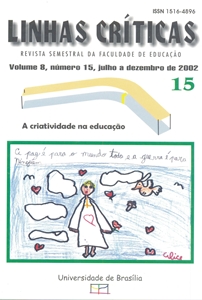O paradigma estético e a psicologia: ressonâncias
DOI:
https://doi.org/10.26512/lc.v8i15.3059Keywords:
Psicologia estética;, Plasticidade;, Ensaio;, Arte;, Vontade de potência;, Tempo redescobertoAbstract
Como bailarina e psicóloga, problematizo o "Fazer Psi", traçando ressonâncias entre Paradigma Estético e Psicologia. Procuro mapear movimentos teóricos e práticos, cartografando experiências e falando de auto-implicação. Deleuze e Guattari discorrem sobre a existência como obra de Arte, criações ético-estéticas, constituintes de modos de existência ou estilos de vida. É o que Nietzsche descobria como a operação artista da vontade de potência, a invenção de novas "possibilidades de vida". Proust fala do tempo redescoberto que há na Arte, como possibilidade de transmutação. Do mesmo modo, discuto a "Psicologia Estética", apostando em sua plasticidade e diversidade, o que nos propicia diferentes formas de intervir. Simulando ensaios, lanço-me ao proibido! E que nos seja permitido cair, para que o novo possa surgir daí.
Downloads
Downloads
Published
How to Cite
Issue
Section
License
Copyright (c) 2016 Linhas Críticas

This work is licensed under a Creative Commons Attribution 4.0 International License.
Authors who publish in this journal agree to the following terms:
-Authors maintains the copyright and grants the journal the right of first publication, the work being simultaneously licensed under the Creative Commons Attribution License which allows the sharing of the work with recognition of the authorship of the work and initial publication in this journal.
- Authors are authorized to enter into additional contracts separately, for non-exclusive distribution of the version of the work published in this journal (eg publish in institutional repository or as a book chapter), with acknowledgment of authorship and initial publication in this journal.
-Authorers are allowed and encouraged to publish and distribute their work online (eg in institutional repositories or on their personal page) at any point before or during the editorial process, as this can generate productive changes as well as increase the impact and the citation of published work (See The Effect of Free Access).



